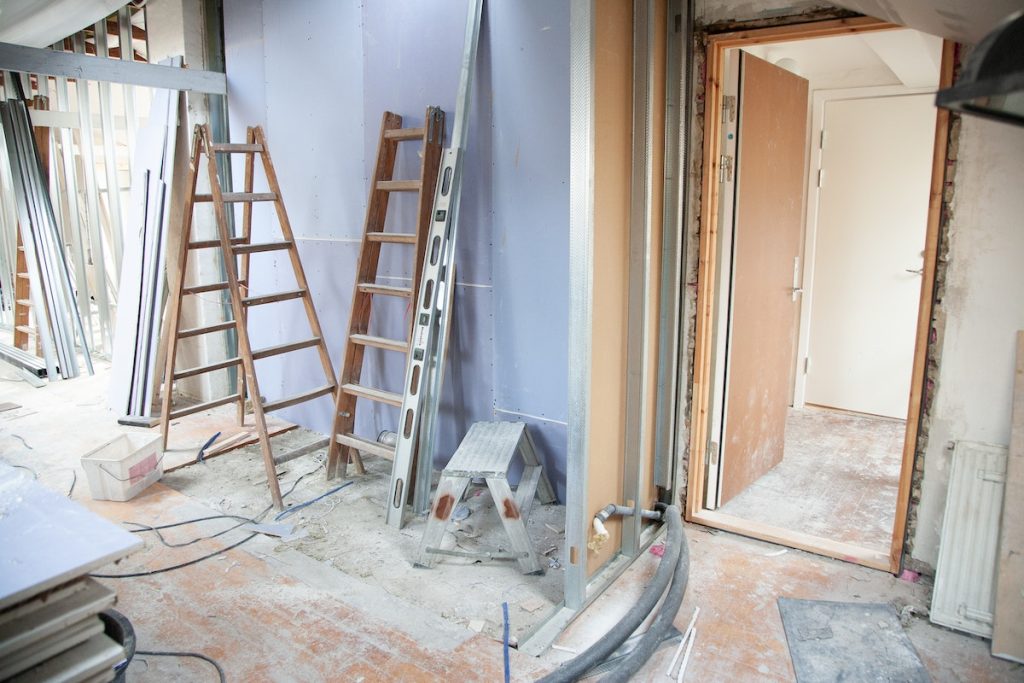- Replace aging HVAC systems with more efficient ones to reduce energy consumption.
- Installing energy-efficient windows and doors can help insulate your home.
- Switching to renewable energy sources such as wind or water power is a great option for reducing carbon footprint.
- Improving insulation helps reduce heat loss through the roof and walls.
- Replacing electrical outlets with efficient models can help minimize wasted energy.
Home renovations can be a great way to improve your home’s efficiency and save money on energy costs. There are many ways to reduce the energy you use in your house, from simple fixes like switching to LED lightbulbs to more complex projects like adding insulation or replacing windows. Whether you’re looking for minor upgrades or significant changes, here are five home renovations that can help you save energy and money.
1. Replace Aging HVAC Systems with More Efficient Ones
Replacing an aging HVAC system with a newer, more efficient one is an easy way to reduce your energy consumption drastically. More recent systems are designed to operate efficiently, using less electricity and lowering monthly utility bills. You can also save money by investing in a programmable thermostat that adjusts the temperature according to your needs.
The cost of replacing an HVAC system depends on various factors, such as the system’s size and complexity and the installation’s quality.
2. Install Energy-Efficient Windows & Doors
Replacing old windows with energy-efficient models is another great way to reduce your home’s energy consumption. Energy-efficient windows are designed with multiple layers of glass and gas-filled chambers that help keep your home’s interior temperature comfortable. The cost of new windows depends on the quality and size, but you can expect to pay anywhere from a few hundred to several thousand dollars.
Here are some energy-efficient doors and windows to choose from:
Double-Glazed Windows
Double-glazed windows feature two panes of glass with a layer of air or gas between them, which helps insulate your home and reduce outside noise. These are usually more expensive than regular windows but provide superior insulation.
Fiberglass Frames

Fiberglass frames are strong and durable and can help improve the thermal performance of your windows. They come in various colors and styles, so you can find something to match the existing design of your home.
Low-E Glass
Low-emissivity glass regulates solar energy by preventing heat loss or gains through the windows. This helps keep your home cooler in the summer and warmer in the winter, leading to energy savings. Installing energy-efficient windows and doors is a great way to reduce your home’s energy consumption and save money in the long run.
Storm Windows
Storm windows are an additional layer of protection over existing windows and can help reduce heat loss or gain by up to 50 percent. They come in various sizes and frame styles, so finding something that fits your home is easy. These windows are less effective than double-glazed or Low-E glass windows but can still help reduce energy costs.
3. Switch to Renewable Energy Sources Such As Wind or Water Power
Switching to renewable energy sources such as wind or water power is an excellent way to reduce your carbon footprint and save money on electricity. Taking advantage of water well drilling can provide you with a reliable, cost-effective source of clean energy all year round. This will help you reduce your energy bills and prevent the need for fossil fuel-based electricity generation. Additionally, renewable energy sources are much more environmentally friendly than traditional sources and can help reduce air pollution.
4. Improve Insulation To Reduce Heat Loss Through the Roof and Walls

Improving insulation is an effective way to reduce heat loss through the roof and walls. Adding additional insulation layers can help prevent hot air from escaping in the summer and cold air from leaking out in the winter. This home improvement is inexpensive and doesn’t require significant changes, so it’s an excellent option for those looking to reduce their energy bills. Additionally, adding insulation is a great way to reduce the noise levels in your home and make it quieter. Many homes are poorly insulated, so this can make a big difference.
5. Replace Electrical Outlets and Bulbs With High-Efficiency Models
Replacing electrical outlets and bulbs with high-efficiency models is a great way to reduce energy consumption. LED light bulbs are more efficient than traditional incandescent bulbs because they use less electricity and last much longer. Replacing old outlets with ENERGY STAR-certified models can also help save energy by automatically shutting off power when not in use.
Closing Thoughts
Making home renovations to reduce energy consumption is a great way to save money and benefit the environment. From insulation upgrades to new windows, plenty of improvements can help you reduce your energy bills.

